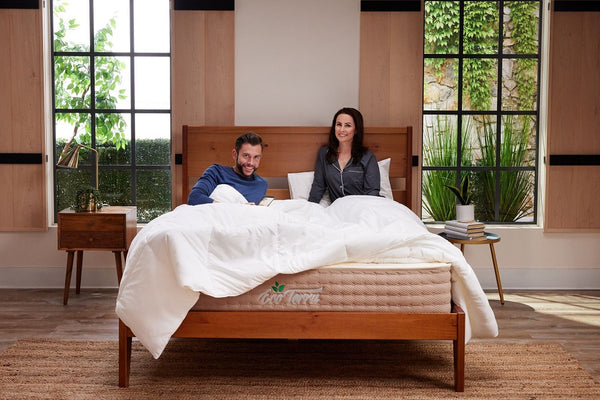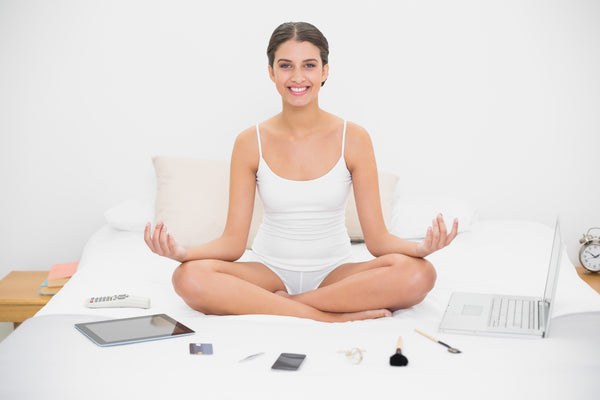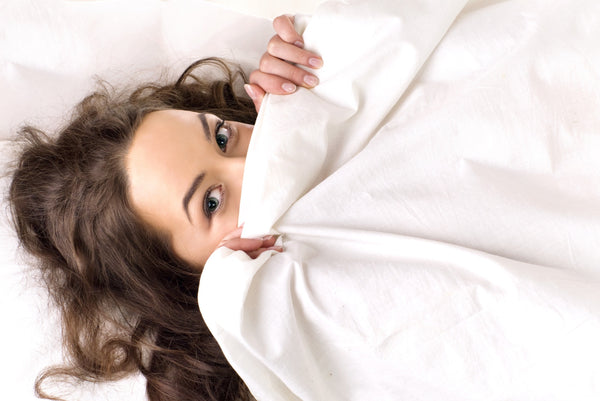Exercise and Sleep

Chances are, you know the quality of your sleep affects your overall well-being and health, and so does exercise. But, does exercise make it easier to fall asleep, or harder? Actually, the answer is both.
Generally, exercise is great for your health, and enhances sleep quality. In fact, several studies show exercising regularly contributes to more overall sleep, and better quality rest.
But, it also can affect your ability to sleep, which you'll learn more about below.
How Exercise Helps with Sleep
Exercise provides a boost to sleep in various ways.
- Sleep Latency and Efficiency
Exercise can decrease sleep latency. This is where you're able to fall asleep quicker. Exercise also increases sleep efficiency (you won't be lying in bed wide awake so much).
- Promotes Deep Sleep
Exercise contributes to more restful, sound sleep. Moderate aerobic exercise helps to increase the amount of deep sleep (slow wave) you get, where your body and brain have the opportunity to rejuvenate. Exercise helps decompress your mind, and stabilize your mood. Mind decompression is a cognitive process essential for the ability to naturally transition to sleep. Deep sleep helps:
- Support cardiac health
- Boost immune function
- Control anxiety and stress
- Increase Sleep Amounts
Along with enhancing your quality of sleep, exercise helps increase the duration of your slumber. By being physically active, you have to expend energy, and this helps make you tired and ready for sleep at the end of the day. A regular, consistent exercise routine, according to research, helps boost sleep quality and sleep duration.
- Reduces Stress and Anxiety
You can reduce your stress levels with a regular exercise routine. Stress often causes sleep issues, including difficulty falling asleep, and sleeping during the night restlessly. Exercise is a great remedy for mood disorders, like anxiety. It triggers your body's anti-anxiety responses. Stretching, yoga, and other mind-body exercises help quiet your parasympathetic nervous system, helping you to relax. According to research, they:
- Reduce blood pressure
- Lower cortisol levels
- Have a positive effect on mood
- Helps with Insomnia and Other Sleep Disorders
Research shows exercise is a natural, effective therapy for insomnia. Aerobics in particular, help reduce symptoms of insomnia. Those with insomnia will notice gradual benefits from exercise; not immediate, the research shows. Studies show exercise helps lower sleep disordered breathing severity, and could also reduce the severity of OSA (obstructive sleep apnea).
How Exercise Can Make It Difficult to Sleep
Some individuals aren't healthy enough for exercise, and in those who are, intense exercise can result in awakenings in the middle of the night. These awakenings could be a result of increased adrenaline levels and/or hyperarousal (hard to relax) during the night following the exercising. Also, increased body heat could make sleeping difficult.
You may find exercising too close to your bedtime may keep you up at night. There are a couple reasons for this:
- Aerobic exercise causes your body to release endorphins (chemicals): These can create a level of brain activity that could keep you awake. If this is the case, you should exercise a minimum of one to two hours prior to going to bed, which will give your brain time to wind down and time for the endorphin levels to wash out.
- Exercise raises your core body temperature: Exercise could cause the same effect as taking a hot shower to wake you in the morning. Core body temperature elevation signals your body clock it's time for you to wake. After around 30 to 90 minutes, your core body temperature begins falling, and this decline helps promote sleepiness.
Even with these biological responses to exercise, you could see no difference in your sleep after exercising. Whether you exercise in the morning or right before bed, you'll see a benefit to your sleep.
The Relationship Between Sleep and Exercise
The National Sleep Foundation ran a "Sleep in America" Poll in 2013 examining the relationship between exercise and sleep. Below are the poll's top five results.
- Exercisers claim to sleep better. Individuals who reported exercising said they experienced better sleep than those who said they didn't. Over three-fourths of exercisers claimed their quality of sleep in the past two weeks was very good or fairly good, compared to a little over a half of non-exercisers.
- Vigorous exercisers claim the best sleep. Those who exercise vigorously are around twice as likely to claim having a good night's sleep almost every night or every night as non-exercisers. They're also the least likely to claim experiencing sleep issues.
- Non-exercisers have the greatest risk for sleep apnea, and are the sleepiest. Around a fourth of non-exercisers who use a standard screening measure qualify as "sleepy." Only 10 to 12 percent of those who exercise qualify as sleepy. Over four in 10 non-exercisers (44 percent) displayed a moderate risk for sleep apnea when they were compared to the 26 percent of light exercisers and the 19 percent of vigorous exercisers.
- Sitting for less time is linked with better health and sleep. Individuals who sit for fewer than eight hours daily were substantially more likely of reporting "very good" quality of sleep.
- Exercising at any time of day seems to help with sleep. Exercising close to bedtime, contrary to "sleep hygiene" advice, wasn't linked with poorer sleep quality. It was actually associated with better sleep regardless of the time of day.
So, how much exercise is correct? There isn't any one correct answer for this. The American Heart Association and the National Institutes of Health suggest a minimum of 150 minutes each week of exercise for healthy adults. This equates to 30 minutes daily, five days a week. Research shows sleep might receive its more substantial benefits from exercise when the exercise is routine and consistent over time, particularly if you're experiencing difficulty sleeping.
Go for a bike ride or jog around your neighborhood, perform a cardio session on your treadmill, or lift some weights at the gym. Any bit of exercise could help you sleep better at night, and feel better during the day. Just remember though, exercising too close to bedtime may interfere with sleep.







